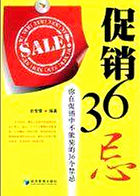I have given figures merely as regards the trade of Buffalo; but it must not be presumed that Buffalo is the only outlet from the great corn-lands of Northern America. In the first place, no grain of the produce of Canada finds its way to Buffalo. Its exit is by the St. Lawrence or by the Grand Trunk Railway as I have stated when speaking of Canada. And then there is the passage for large vessels from the upper lakes--Lake Michigan, Lake Huron, and Lake Erie--through the Welland Canal, into Lake Ontario, and out by the St. Lawrence. There is also the direct communication from Lake Erie, by the New York and Erie Railway to New York. I have more especially alluded to the trade of Buffalo, because I have been enabled to obtain a reliable return of the quantity of grain and flour which passes through that town, and because Buffalo and Chicago are the two spots which are becoming most famous in the cereal history of the Western States.
Everybody has a map of North America. A reference to such a map will show the peculiar position of Chicago. It is at the south or head of Lake Michigan, and to it converge railways from Wisconsin, Iowa, Illinois, and Indiana. At Chicago is found the nearest water carriage which can be obtained for the produce of a large portion of these States. From Chicago there is direct water conveyance round through the lakes to Buffalo, at the foot of Lake Erie. At Milwaukee, higher up on the lake, certain lines of railway come in, joining the lake to the Upper Mississippi, and to the wheat-lands of Minnesota. Thence the passage is round by Detroit, which is the port for the produce of the greatest part of Michigan, and still it all goes on toward Buffalo. Then on Lake Erie there are the ports of Toledo, Cleveland, and Erie. At the bottom of Lake Erie there is this city of corn, at which the grain and flour are transhipped into the canal-boats and into the railway cars for New York; and there is also the Welland Canal, through which large vessels pass from the upper lakes without transhipment of their cargo.
I have said above that corn--meaning maize or Indian-corn--was to be bought at Bloomington, in Illinois, for ten cents (or five pence) a bushel. I found this also to be the case at Dixon, and also that corn of inferior quality might be bought for four pence;but I found also that it was not worth the farmer's while to shell it and sell it at such prices. I was assured that farmers were burning their Indian-corn in some places, finding it more available to them as fuel than it was for the market. The labor of detaching a bushel of corn from the hulls or cobs is considerable, as is also the task of carrying it to market. I have known potatoes in Ireland so cheap that they would not pay for digging and carrying away for purposes of sale. There was then a glut of potatoes in Ireland; and in the same way there was, in the autumn of 1861, a glut of corn in the Western States. The best qualities would fetch a price, though still a low price; but corn that was not of the best quality was all but worthless. It did for fuel, and was burned. The fact was that the produce had re-created itself quicker than mankind had multiplied. The ingenuity of man had not worked quick enough for its disposal. The earth had given forth her increase so abundantly that the lap of created humanity could not stretch itself to hold it. At Dixon, in 1861, corn cost four pence a bushel. In Ireland, in 1848, it was sold for a penny a pound, a pound being accounted sufficient to sustain life for a day; and we all felt that at that price food was brought into the country cheaper than it had ever been brought before.
Dixon is not a town of much apparent prosperity. It is one of those places at which great beginnings have been made, but as to which the deities presiding over new towns have not been propitious. Much of it has been burned down, and more of it has never been built up. It had a straggling, ill-conditioned, uncommercial aspect, very different from the look of Detroit, Milwaukee, or St. Paul. There was, however, a great hotel there, as usual, and a grand bridge over the Rock River, a tributary of the Mississippi, which runs by or through the town. I found that life might be maintained on very cheap terms at Dixon. To me, as a passing traveler, the charges at the hotel were, I take it, the same as elsewhere. But I learned from an inmate there that he, with his wife and horse, were fed and cared for and attended, for two dollars (or eight shillings and four pence) a day. This included a private sitting-room, coals, light, and all the wants of life--as my informant told me--except tobacco and whisky. Feeding at such a house means a succession of promiscuous hot meals, as often as the digestion of the patient can face them. Now I do not know any locality where a man can keep himself and his wife, with all material comforts and the luxury of a horse and carriage, on cheaper terms than that. Whether or no it might be worth a man's while to live at all at such a place as Dixon, is altogether another question.
We went there because it is surrounded by the prairie, and out into the prairie we had ourselves driven. We found some difficulty in getting away from the corn, though we had selected this spot as one at which the open rolling prairie was specially attainable. As long as I could see a corn-field or a tree I was not satisfied.
Nor, indeed, was I satisfied at last. To have been thoroughly on the prairie, and in the prairie, I should have been a day's journey from tilled land. But I doubt whether that could now be done in the State of Illinois. I got out into various patches and brought away specimens of corn--ears bearing sixteen rows of grain, with forty grains in each row, each ear bearing a meal for a hungry man.















